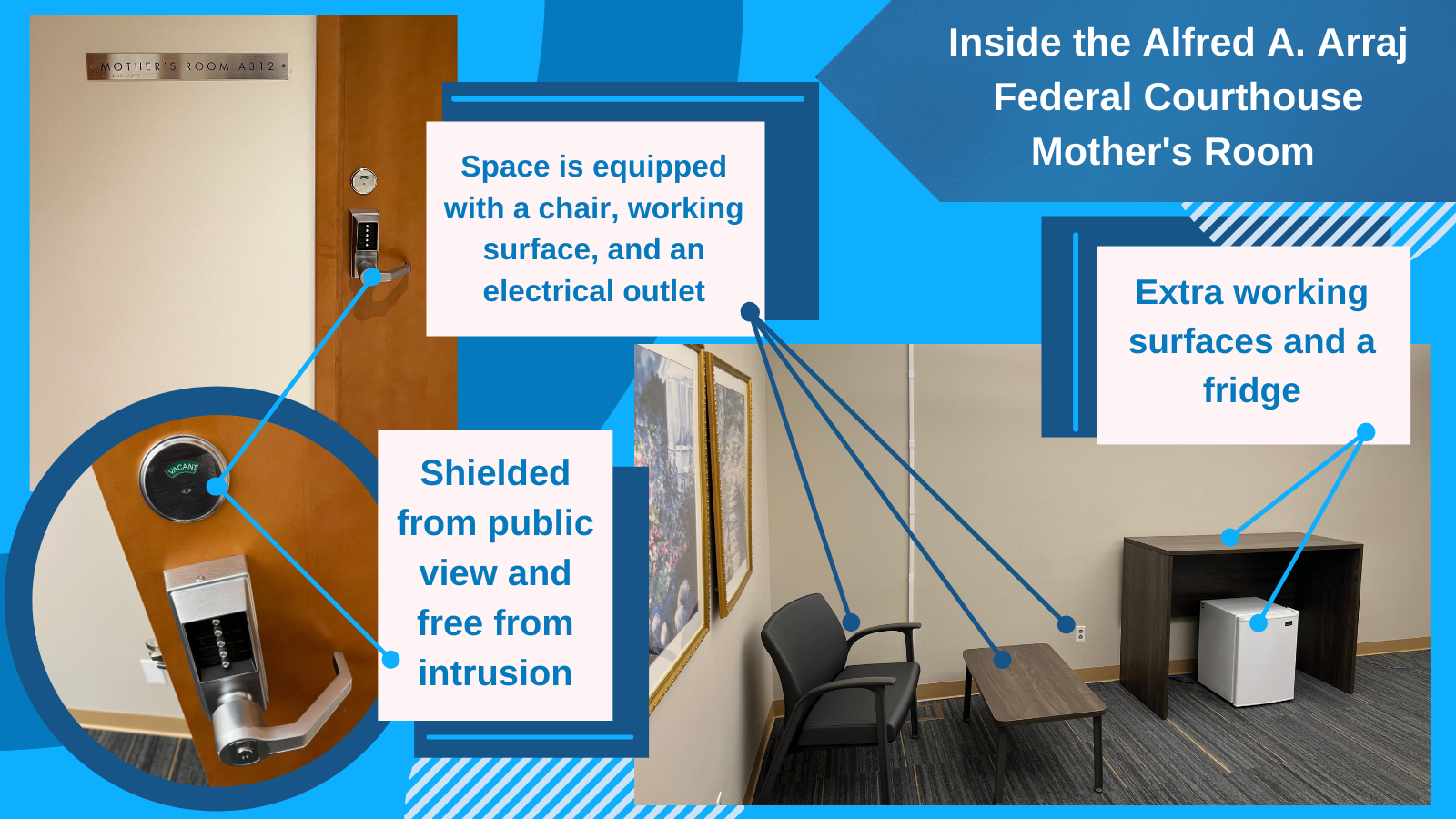
Policy in Practice: How GSA Supports Caregiving and Working Moms in Its Public Buildings
Post filed in: Equity
Women’s History Month dates back to the 1850s when female factory workers in New York City staged protests over poor working conditions. In 1901, its place in history was solidified when the first Women’s Day was celebrated in the city. It would be more than seven decades before Congress officially established National Women’s History Week in 1981, which then became Women’s History Month in 1987.
Since then, Congress and the president continue to designate March as National Women’s History Month. This year’s theme is Providing Healing, Promoting Hope. It’s a tribute to the tireless work of caregivers and frontline workers throughout the ongoing pandemic. GSA honors the strength and determination of these women.
GSA supports breastfeeding mothers in the federal workforce, as well as those who make use of public federal buildings and have their nursing infants with them.
Through policy, GSA’s Office of Government-wide Policy is advancing gender inclusivity and reasserting the importance of lactation spaces for persons who are nursing in public buildings. This bulletin updates a decade-old regulation by clarifying the space requirements associated with the provision of lactation rooms in certain public buildings, and also reaffirms the availability of lactation spaces in public buildings for both federal employees and members of the public.
In practice, federal buildings, like the Alfred A. Arraj Courthouse in Denver, are working towards converting space in accordance with the “Fairness for Breastfeeding Mothers Act of 2019,” which requires federal agencies to provide authorized members of the public with a lactation room. This applies to public buildings under the jurisdiction, custody, or control of GSA that are open to the public and contain a public restroom.
The team that manages the Arraj Courthouse, including both GSA and court employees, saw an opportunity to repurpose space to provide employees and visitors a safe, welcoming mother’s room. Human Resources Administrator Louise Wilson saw another building’s lactation rooms and wondered if the Arraj had a similar space. The team repurposed an old smoking room into the attorney’s lounge, allowing for that space to be converted into a mother’s room. Since the shift of space, the staff at the Arraj have been pleasantly surprised by the reaction from employees, attorneys, and other members of the public who use the space.
The Court Clerk for the U.S. District Court for the District of Colorado, Jeffrey Colwell, shared that the “mother’s room project in the Arraj was long overdue. It was dismaying for me to discover that our building provided accommodations for smokers, but not suitable accommodations for mothers. With GSA’s assistance, we no longer permit smoking in our building, and more significantly, I’m immensely pleased that we are finally able to provide a private and comfortable space for any mother in our courthouse that may need it.”

New mom Jaya Charles was hired last year as an operations support clerk. When told about the mother’s room she was “super excited because at [her] previous place of employment they did not have a specific place for mothers. They pretty much let you use the secretary’s office so having this room was very exciting for [her].” She was also impressed that the room not only met the standards set in the Federal Management Regulation, but it also had art on the walls, different chairs and couches to use, as well as a refrigerator. For Jaya, “Having an actual area specifically for my needs made [her] feel welcomed, accepted and empowered as a working mom!”

 U.S. General Services Administration
U.S. General Services Administration
